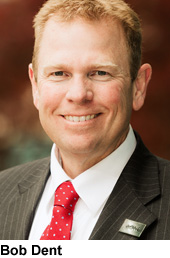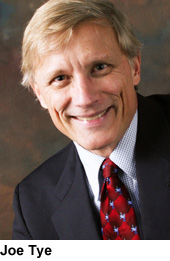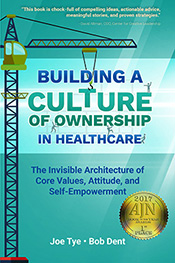Have you taken the Pickle Pledge?

A hospital’s chief operating officer and chief nursing officer and the CEO of a consulting and coaching firm share insights on building cultures of ownership in healthcare.
No one responds well when told they are being held accountable. Think about it. If your boss says, “I’m going to hold you accountable for ______,” can you complete that sentence in a way that puts more swagger in your step?
 Additionally, a culture of accountability will never take an organization from good to great because it fosters a carrot-and-stick climate that gives employees little motivation to go above and beyond their job descriptions, the things for which they are held accountable. In their book The Innovation Paradox, Farson and Keyes observe that, while accountability can motivate performance briefly, “In the long run, … there could hardly be a more inhibiting practice. When made a fetish, accountability stifles creativity. Far from making employees perform better long term, accountability encourages a culture of evasion, denial, and finger pointing” (Farson & Keyes, 2003, p. 69). One need look no further than scandals at Enron, Wells Fargo, and other organizations to see this principle played out.
Additionally, a culture of accountability will never take an organization from good to great because it fosters a carrot-and-stick climate that gives employees little motivation to go above and beyond their job descriptions, the things for which they are held accountable. In their book The Innovation Paradox, Farson and Keyes observe that, while accountability can motivate performance briefly, “In the long run, … there could hardly be a more inhibiting practice. When made a fetish, accountability stifles creativity. Far from making employees perform better long term, accountability encourages a culture of evasion, denial, and finger pointing” (Farson & Keyes, 2003, p. 69). One need look no further than scandals at Enron, Wells Fargo, and other organizations to see this principle played out.
 What’s the answer? Build a culture of ownership. In a culture of ownership, people are 1) emotionally positive, 2) self-empowered, and 3) fully engaged. In the healthcare environment, we call fostering these essential attributes The Florence Challenge because they are the key qualities Florence Nightingale brought with her to Barrack Hospital in Scutari, Turkey. There, responding to an almost unimaginable healthcare crisis, she established nursing as a profession and created a blueprint for the hospital as we know it today.
What’s the answer? Build a culture of ownership. In a culture of ownership, people are 1) emotionally positive, 2) self-empowered, and 3) fully engaged. In the healthcare environment, we call fostering these essential attributes The Florence Challenge because they are the key qualities Florence Nightingale brought with her to Barrack Hospital in Scutari, Turkey. There, responding to an almost unimaginable healthcare crisis, she established nursing as a profession and created a blueprint for the hospital as we know it today.
1) Emotionally positive
A 1999 editorial by Donald Berwick, MD, and Lucian Leape, MD, contended that 100,000 people a year were dying because of preventable healthcare errors. The editorial led to the 100,000 Lives Campaign, which established a goal and deadline for improving healthcare quality. The Agency for Healthcare Research and Quality developed a teamwork system called TeamSTEPPS—Team Strategies and Tools to Enhance Performance and Patient Safety—that identified knowledge, skills, and attitudes needed to improve performance and patient safety.
Attitude may be the most important part of the equation for improving team performance and patient safety. When people engage in toxic behaviors, such as incivility, bullying, emotional negativity, and the like, poor communications and poor outcomes, including reduced patient safety, are the result.
Just as TeamSTEPPS helped create a common language to improve patient safety—one example is CUS—healthcare leaders must use a common language to end toxic emotional negativity in our organizations. That’s what we’ve sought to do at Midland Memorial Hospital in Midland, Texas, USA, where I [Bob Dent] serve as chief operating officer and chief nursing officer.
Every morning at 8:16, leaders and others gather in the hospital’s main lobby, for no more than 14 minutes, for a Daily Leadership Huddle that starts with this Pickle Pledge: “I will turn every complaint into either a blessing or a constructive suggestion. By taking the Pickle Pledge, I am promising myself that I will no longer waste my time and energy on blaming, complaining, and gossiping, nor will I commiserate with those who steal my energy with their blaming, complaining, and gossiping.” This simple pledge to rid the hospital of incivility among its healthcare workers then occurs throughout the hospital’s departments via unit-based huddles.
We call it the Pickle Pledge because chronic complainers, at least metaphorically, have expressions that look like they’ve been sucking on a bitter dill pickle. (We tell people to enjoy their pickles—we both do—just don’t look like you’ve been sucking on one.)
The Pickle Challenge for Charity—see www.PicklePledge.com—is a fun, light-hearted activity that helps inculcate into an organization’s cultural DNA a commitment to positive attitudes. Turning a complaint into a charitable contribution helps people be more aware of their own negativity—we are all more negative than we care to admit—and the negativity that surrounds them. These donations often inspire matching contributions. As of this writing, Values Coach alone has given more than $25,000 in matching funds to charities selected by client organizations.
For example, after Hurricane Harvey hit the Gulf Coast of the United States in August 2017, Midland Hospital launched a Pickle Challenge for Charity, choosing the Texas Hospital Association’s Hospital Employee Assistance Fund as the charity. By the time the challenge was completed, more than $10,000 was collected to help hospital employees whose lives had been impacted by the hurricane’s devastating destruction. To create a more positive workplace environment, nurse leaders must model desired attitudes and behavior.
2) Self-empowered
The spirit of self-empowerment is the catalyst for personal motivation and initiative. Using Midland Hospital again as an example, after the Pickle Pledge is recited, the people assembled for the Daily Leadership Huddle repeat the day’s Self-Empowerment Pledge. Monday’s pledge promises, “I will take complete responsibility for my health, my happiness, my success, and my life, and will not blame others for my problems or predicaments.” Tuesday’s pledge promises accountability: “I will not allow low self-esteem, self-limiting beliefs, or the negativity of others to prevent me from achieving my authentic goals and from becoming the person I am meant to be.” Wednesday’s pledge—determination—is: “I will do the things I’m afraid to do but which I know should be done. Sometimes, this will mean asking for help to do that which I cannot do by myself.”
Shortly after we implemented recital of these promises in daily huddles around the hospital, I received a call from a nurse who wanted to meet with me. He brought his wife and his unit leaders to the meeting. In an emotional gathering, he confessed that he had been diverting narcotics, taking them to the locker room, and self-injecting. He was asking for help. He received the help he needed via a drug rehabilitation program available to employees and was able to overcome his addiction. He stated that it was a miracle that we began reciting these promises in huddles. Each day, as he recited that day’s promise, he could no longer live with the fact that he was not living up to the standards of the nursing profession and his teammates. With his permission, I wrote about it in a story titled “Promises,” and it was included in Chicken Soup for the Soul: Inspiration for Nurses, compiled by Amy Newmark and LeAnn Thieman.
3) Fully engaged
In a properly functioning culture of ownership, workers are fully engaged—in personal and family life, their careers, and, for nurses, in professional organizations, such as Sigma Theta Tau International Honor Society of Nursing (Sigma). With regard to professional organizations, members should actively participate in advancing the organization’s mission, vision, core values, and strategic priorities.
We should also be fully engaged in creating more positive and healthy workplace environments. At Midland Memorial Hospital, our leaders created the Leadership Team PLEDGE to provide a more consistent approach to leadership. People who think like owners are actively engaged in their work and feel a sense of connection with their colleagues and their organization.
Healthcare organizations are not immune to negative cultures adversely affecting proactive strategies. To counteract these negative cultures, nurse leaders must create a more positive and productive culture of ownership where people are emotionally positive, self-empowered, and fully engaged.
 Bob Dent, DNP, MBA, RN, NEA-BC, CENP, FACHE, FAAN, is senior vice president, chief operating officer, and chief nursing officer at Midland Memorial Hospital in Midland, Texas, USA. In addition to membership in Sigma, he is 2018 president of the American Organization of Nurse Executives board of directors.
Bob Dent, DNP, MBA, RN, NEA-BC, CENP, FACHE, FAAN, is senior vice president, chief operating officer, and chief nursing officer at Midland Memorial Hospital in Midland, Texas, USA. In addition to membership in Sigma, he is 2018 president of the American Organization of Nurse Executives board of directors.
Joe Tye, MHA, MBA, is chief executive officer and head coach of Values Coach Inc, which provides consulting, training, and coaching on values-based leadership and cultural transformation.
Bob Dent and Joe Tye are authors of Building a Culture of Ownership in Healthcare, published by Sigma. See sample chapter.
Reference:
Farson, R.E., & Keyes, R. (2003). The innovation paradox: The success of failure, the failure of success. New York, NY: Free Press.